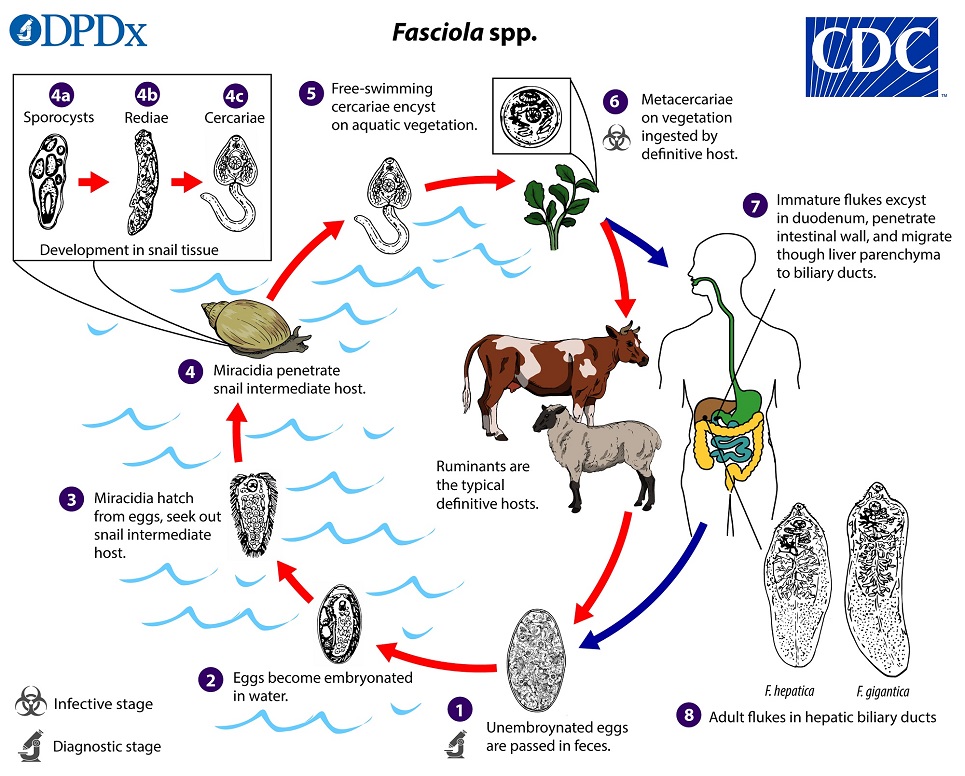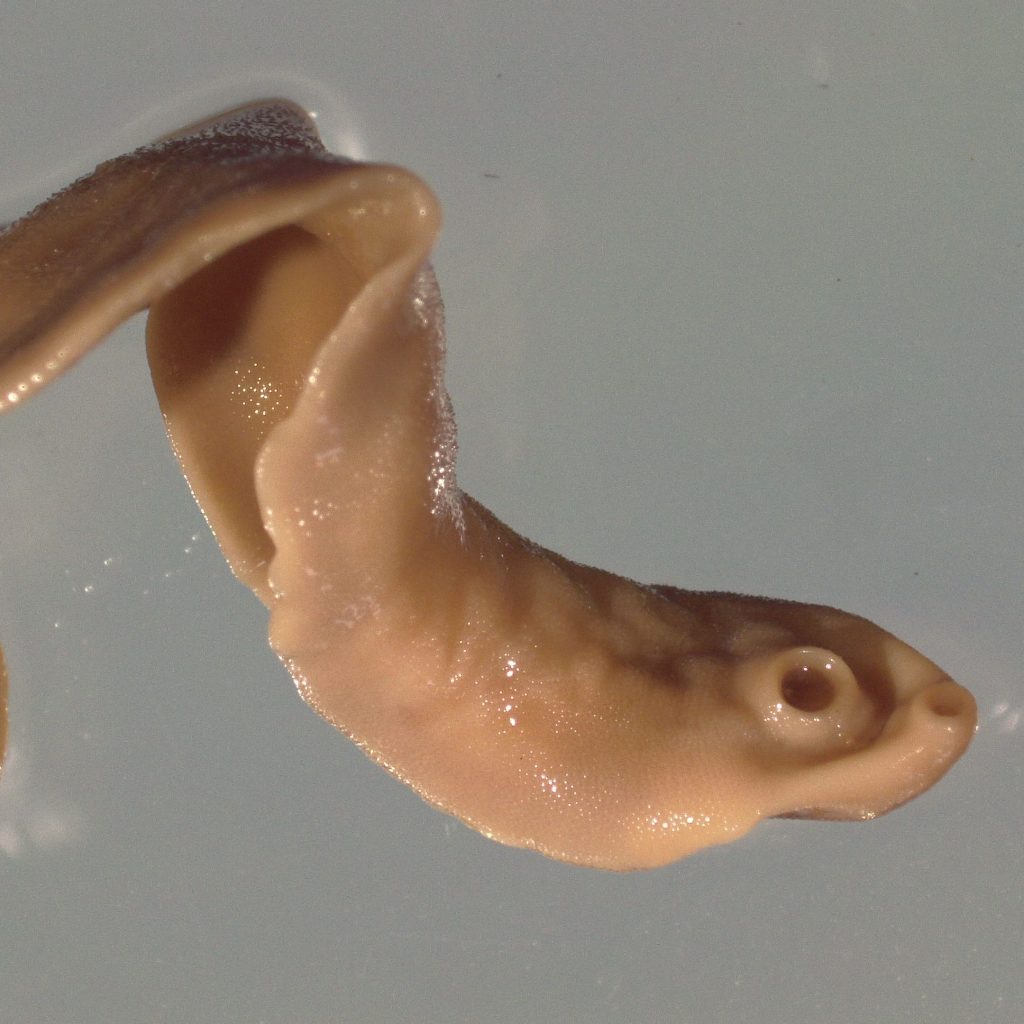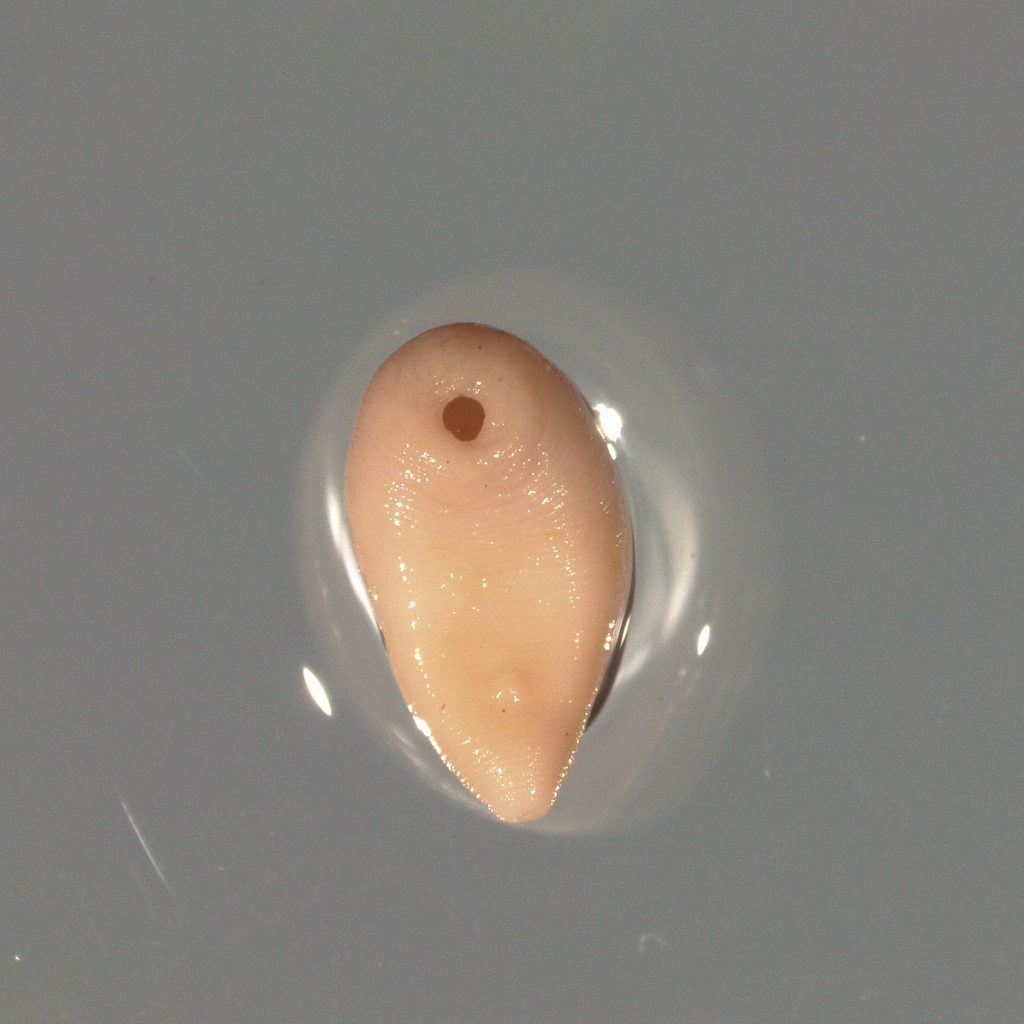
Clinical context
The trematodes Fasciola hepatica (also known as the common liver fluke or the sheep liver fluke) and Fasciola gigantica are large liver flukes (F. hepatica: up to 30 mm by 15 mm; F. gigantica: up to 75 mm by 15 mm), which are primarily found in domestic and wild ruminants (their main definitive hosts) but also are causal agents of fascioliasis in humans.
Fasciola hepatica is found on all inhabited continents, in more than 70 countries, particularly where sheep or cattle are raised. Human infections have been reported in parts of Europe, the Middle East, Latin America (e.g., Bolivia and Peru), the Caribbean, Asia, Africa, and rarely in Australia. Although the conditions for F. hepatica life cycle exist in the some parts of the United States, most of the reported U.S. cases of F. hepatica infection in humans have occurred in immigrants who became infected in other countries.
Fasciola gigantica is mainly found in tropical and subtropical regions. Human cases have been reported in parts of Asia and Africa, as well as in Hawaii and Iran.
Our products
- FH01: Fasciola hepatica, SWAP (Soluble Worm Antigen Preparation)
- FH02: Fasciola hepatica, ES products
- FH03: Fasciola hepatica gDNA
- FG01: Fasciola gigantica : SWAP (Soluble Worm Antigen Preparation)
- FG02: Fasciola gigantica gDNA

